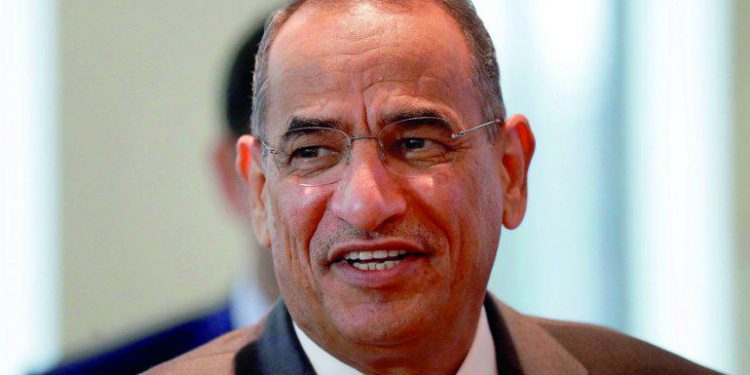Kuwait and Iraq will appoint consultants soon to study the development of shared oilfields, Kuwaiti Oil Minister Bakhit Al Rashidi (pictured) said yesterday. Production from cross-border oilfields has long been a source of tension between the two Opec nations.
In the build-up to Iraq’s 1990 invasion of Kuwait, Baghdad accused Kuwait of drilling wells that crossed the border and pumped oil from Iraqi territory. Kuwait denied the charge.
The two countries should agree before the end of the year on plans for the shared fields and also on supplying Iraqi natural gas to Kuwait, the Minister said during a visit to Al Doha East power plant, near the capital Kuwait City. “The shared oil fields project aims at producing oil from border fields,” he said, adding that oil should be extracted by “one company and one team, production will be shared and the cost will be split between the two sides.”
Kuwait and Iraq would pick a consultancy firm to advise on the project from a list of four candidates that the two states have already agreed on, he said, giving no further details.
A project to supply a Kuwaiti petrochemical project with gas from Iraq’s Rumaila field, near the border, is still awaiting final approval by the two countries even though Kuwait said in 2017 a preliminary deal had been reached on the fuel price.
The exports would pay off Baghdad’s final $4.6bn in war reparations owed to Kuwait for the invasion and occupation between August 1990 and February 1991.
Rashidi said talks were under way to link the electricity grids of Iraq and the six-nation Gulf Cooperation Council (GCC).
The power shortage in Iraq sparked protests in Basra and other Iraqi cities in July, as people blamed what they called an inept Iraqi government.
Kuwait donated 17 power generators last month to Iraq to alleviate the crisis, state-run Kuwait News Agency (KUNA) reported. “There will also be a project in the future for an electricity link between Iraq and Turkey, thus achieving a linkup between the GCC and Europe,” the minister said.
Meanwhile, Al Rashidi said Opec and other oil exporting producers are expected to agree on a mechanism to monitor their crude production before the end of the year. A committee set up by the Organization of the Petroleum Exporting Countries and allied non-Opec exporters would review their crude output at a meeting in Algeria next month, he told reporters while touring an electricity station.
“The production numbers of Opec and (countries) outside Opec will be reviewed at the meeting in Algeria, and before the end of the current year, there will be an agreement on a mechanism to monitor output next year,” he said. Oil markets should “remain stable” until the end of the year, he added.
The committee will meet in Algeria on September 23. After months of underproduction aimed at bolstering crude prices, Opec agreed with Russia and other oil-producing allies to raise output from July.
The Peninsula
23/08/2018






















































